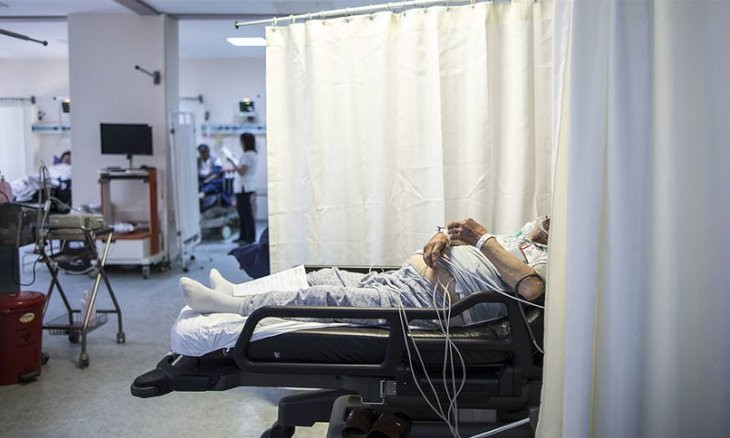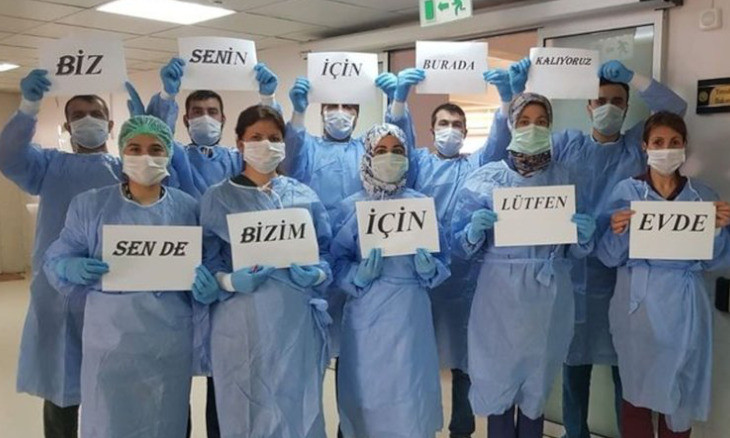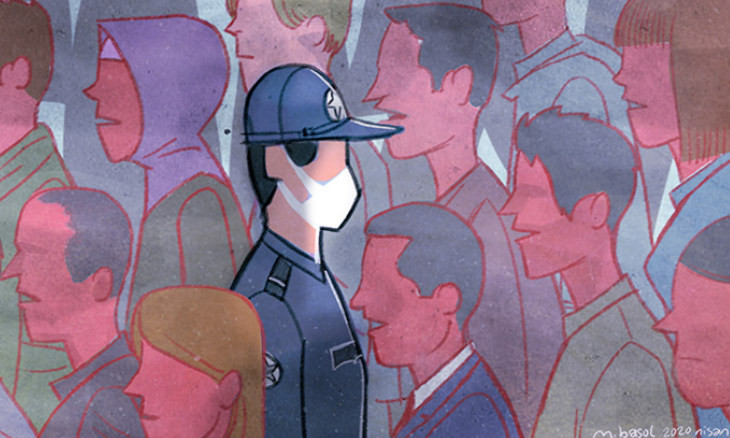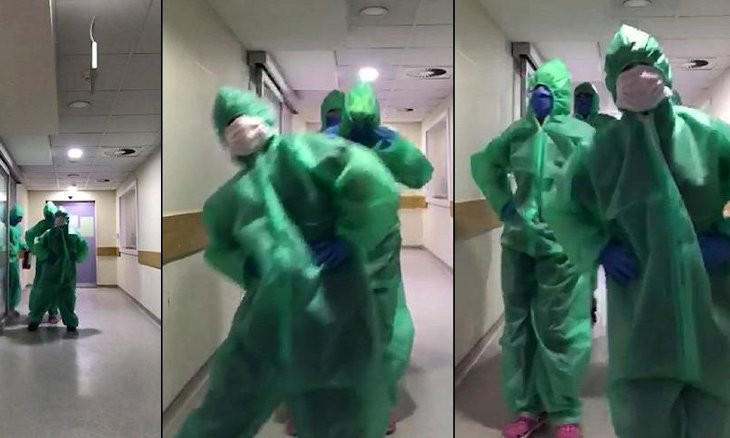Hospital janitors and caretakers in Turkey risking their lives for low wages without sufficient protection gear
Müzeyyen Yüce reports: We spoke with janitors and caretakers working at high-risk hospitals. Considering themselves the “weakest link in the chain” of healthcare workers, these personnel are facing difficulties finding protective equipment, and a significant number of them have caught the virus. "We are a part of this process but we are not considered to be healthcare workers," they complain.
Müzeyyen Yüce / DUVAR
While an increasing number of doctors and nurses who are working under great risk in the struggle against coronavirus are themselves contracting the virus, hospital caretakers and janitors, who come into contact with dozens of patients every day, are also seriously worried. Considering themselves the “weakest link in the chain” of healthcare workers, these personnel are facing difficulties finding protective equipment, and a significant number of them have caught the virus.
We spoke with janitors working at high-risk hospitals. When the pandemic started, they said they were given some information by doctors from the hospital's infectious diseases department, but apart from that, they were not provided with any in-depth training. “They said that our lives are the first priority but they didn't give us protective health equipment for a week,” said one worker.
One hospital personnel said that they entered and cleaned rooms of patients being treated for coronavirus at least four times a day:
“The first week after the first case was announced protective materials were not given out. After our objections and a serious struggle, they started to hand out masks, latex gloves, and bonnets. There was a table in front of the rooms where they put the protective equipment. There was one pair of protective glasses, first the doctor would wear them, then disinfect them and give them to the nurse, and then at last we would use them,” the worker said.
 Health ministry declares private hospitals 'pandemic hospitals' amid virus outbreak
Health ministry declares private hospitals 'pandemic hospitals' amid virus outbreak“We didn't accept this, we said that if they didn't provide everyone with separate equipment than we would not enter the rooms, and after our objections they started giving everyone different glasses. But M3 masks still aren't being given out, we are using surgical masks. They just started handing out jumpsuits in the last week. We enter the rooms at least four times a day and clean them by disinfecting everything. We use different cleaning materials for each room. A mop that we use in one room is not used in another. We are going to extra lengths as personnel to protect ourselves,” they added.
One worker said that at their hospital, not a single cleaning personnel has been tested for the virus up until this point:
“They told us 'there are no kits' and didn't conduct any tests. Maybe we are carriers at the moment. I have two small children, and for that reason I haven't gone home for 26 days. I'm staying at a dormitory that has been designated for healthcare workers. At the end of the day we are scared that we could be carriers and spread it to our loved ones. We are a part of this process but we are not considered to be healthcare workers. The extra pay that doctors and nurses get is not given to us,” the worker said
“However, we are working under risk. In particular when we work in intensive care, we are under greater risk. Nearly all of the patients are intubated. When we enter intensive care, we are given a jumpsuit, glasses and a mask. For eight hours we don't leave intensive care except to go to lunch,” they added.
A janitor from another hospital said that apart from a couple of state hospitals that had better resources, most healthcare personnel were working under very bad conditions:
“It would be considered lucky to get one mask which you have to sign for and work with for the entire day, because most of our colleagues do not have masks or gloves. There is a major issue in terms of outfits. Until a few days ago we weren't able to get white jumpsuits. We refused to enter the rooms of patients, and they wrote this up but this way we were able to get the jumpsuits,” the worker said.
 Healthcare workers losing motivation, medical chamber warns
Healthcare workers losing motivation, medical chamber warns“We are the ones inside this system who are unseen,” said another personnel, adding that 6-7 of their coworkers had contracted the virus. “One of our friends was working with sloppy equipment in the emergency ward where there is a blatant risk. They recently tested positive and the management has said that they have been isolated. We work for 2304 TL a month. Our friend lives in a tiny single room with their mother, who is older than 65. Under these circumstances how can they be isolated?” they said.
“We supposedly are healthcare workers but we are never mentioned, we are not treated as people. The equipment that comes to the hospital first goes to the doctors and the nurses, if there is any left over it is given to us. We are, in fact, the ones that are dying for 2304 TL,” the worker said.
 The reflections of a hospital security guard: If I am lucky to find a mask I have to use it for 12 hours
The reflections of a hospital security guard: If I am lucky to find a mask I have to use it for 12 hoursAccording to Aydın Erol, an Istanbul branch leader of the Health and Social Service Laborers Union (SES), janitors and caretakers both lack job safety and are financially disadvantaged.
“When the protective materials are insufficient, they are not given to the janitors and caretakers, who we refer to as the weakest link in the chain. Sometimes only surgical masks are provided,” Erol said, adding that hospitals claim that they are keeping janitors far away from the patients that are infected with the virus, but that workers claim the contrary.
“These people are the group most at risk but they are not treated positively neither in terms of equipment nor in terms of wage. When it comes to their duties, there is this approach that dictates that they must do whatever they are told. This is the reason that they are afraid to object,” Erol said.
 Turkish healthcare workers do penguin dance to cheer up coronavirus patients
Turkish healthcare workers do penguin dance to cheer up coronavirus patients
